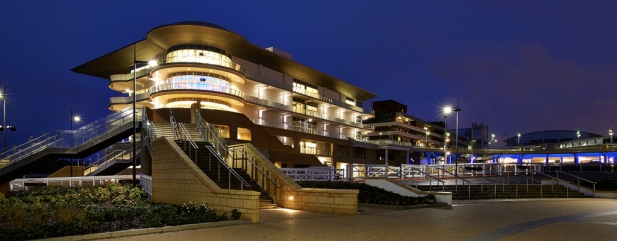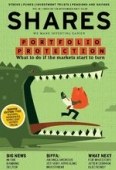Archived article
Please note that tax, investment, pension and ISA rules can change and the information and any views contained in this article may now be inaccurate.
Kier benefits from bite-sized approach

The market is displaying a sunnier disposition to builder and civil engineer Kier (KIE) in the wake of its latest financial results published on 21 September.
Sentiment towards Kier had soured thanks to damaging profit warnings from sector peers Carillion (CLLN) and Interserve (IRV) such that the stock was down 20% year-to-date before the numbers were published.
The results were thankfully reassuring with underlying pre-tax profit up 8% year-on-year to £126m, covering the 12 months to 30 June 2017.
Despite a small share price recovery to £11.67 off the back of the results, the stock is still too cheap in our opinion.
Kier trades on a price-to-earnings ratio of 9.9 times and offers a dividend yield of 6% based on consensus forecasts.
The Vision 2020 strategy remains on track, according to the company, and could deliver double-digit earnings growth over the next couple of years.
The dividend is likely to grow at a slower pace as the company rebuilds dividend cover from the current 1.6 ratio times to a more comfortable 2.0 times earnings.
Unpeel the first layer
Chief executive Haydn Mursell explains to Shares how Kier is distinct from its rivals. ‘If you look at the business in comparison to others, while we are in the same sort of spaces, if you unpeel that first layer our construction activities are quite different. We are focused on high volume of smaller contracts which often have duration of six to nine months.’
This diversity reduces the risk of Kier getting tangled up in the large unwieldy and underperforming contracts which have been so damaging for the likes of Carillion.
The fact much of its work is completed within a year also means the company is less likely to be affected by looming accounting changes which will impact the way revenue from a contract is recognised.
Management has ‘simplified’ the business to focus on three core areas – building, infrastructure and housing. Mursell says the building market remains very strong, particularly for the regional, modest value schemes which Kier focuses on (average selling price £220,000) and adds that in infrastructure the company has a ‘huge pipeline of work’.
Debt is asset backed
Net debt came in at £110m and averaged £330m throughout the year but stockbroker Numis says ‘neither are an issue in our view as they reflect investment in high-returning property and residential assets, which also means debt is fully asset-backed’.
Important information:
These articles are provided by Shares magazine which is published by AJ Bell Media, a part of AJ Bell. Shares is not written by AJ Bell.
Shares is provided for your general information and use and is not a personal recommendation to invest. It is not intended to be relied upon by you in making or not making any investment decisions. The investments referred to in these articles will not be suitable for all investors. If in doubt please seek appropriate independent financial advice.
Investors acting on the information in these articles do so at their own risk and AJ Bell Media and its staff do not accept liability for losses suffered by investors as a result of their investment decisions.
Issue contents
Big News
- Big news in the banking sector
- Gambling stocks in focus ahead of Government review
- Cobham appoints former Airbus UK chief
- MJ Gleeson is one of our top picks among housebuilders
- What next for investors after German elections?
- Central Asia Metals’ zinc move makes the stock higher risk
- UK hotel growth to decline in 2018

 magazine
magazine










